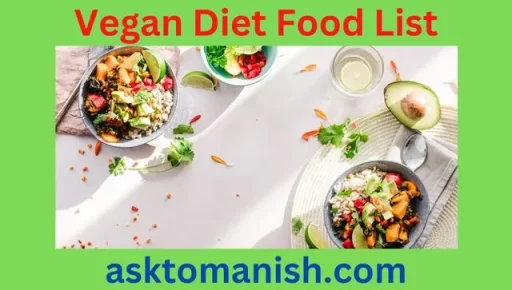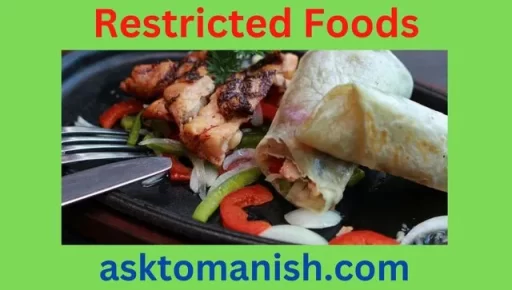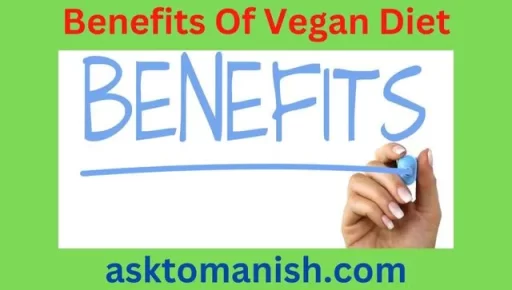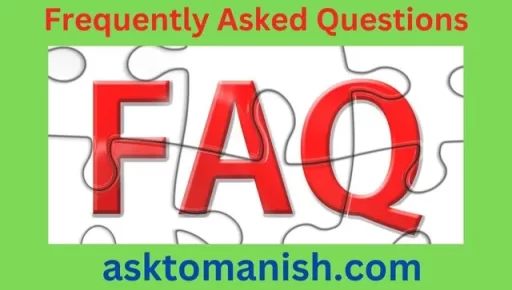Page Contents
The vegan diet

The vegan diet is becoming more and more popular now. This diet plan restricts all animal products .It includes meat, fish, poultry products, and dairy products.
People all over the world prefer to follow this diet for various reasons. This includes the desire to improve health, as well as ethical and environmental reasons.
Science behind vegan diet:
![]()
Vegans are generally slimmer and have a lower body mass index (BMI) than non-vegans. Studies show that people who follow this diet plan lose more weight than those who eat a low-calorie diet.
It is also applicable when they are allowed to eat until they feel full. This is due to the excess of fiber in the vegan diet which makes you feel full for longer.
Foods to eat in a vegan diet


It is advisable to take nutritious plant-based replacements as an alternative to animal feed. They should be as follows:
1.Fruits and vegetables: Both of these foods are excellent for nutrients intake. Vegetables like spinach, mustard greens, and salads are essential components of a vegan diet.
2. Sprouts: In spite of being a low-calorie food, sprouts are also an excellent source of nutrients like protein, magnesium, phosphorous, and vitamin c and vitamin k.
3. Tofu: Tofu is an excellent alternative source of protein. Thus it is easy to restrict animal products like meat, fish, chicken, eggs, etc. in the meals.
4.Plant milk and yogurts: Non dairy milk which can be made by legumes,nuts,coconut etc are an excellent alternative for achieving the daily calcium intake.
5. Nuts and Nut Butters: Nuts such as peanuts, almonds etc. are excellent sources of fiber and nutrients like iron, magnesium and zinc.
6.Legumes: Legumes such as peas, beans, and lentils are excellent sources of proteins and many other nutrients .
Foods restricted in vegan diet:


In vegan diet not only the all types of animal food is restricted,but the food derived from animals is also totally avoided.So you should completely avoid the following foods.
1. Meat and poultry products: This includes all types of meat such as chicken, meat, beef, lamb, pork, etc. Besides this, the diet also restricts all types of eggs.
2. Dairy products: This includes all types of dairy products like milk, curd, cheese, butter, cream, ice cream, yogurt, etc.
3. Seafood: This includes all types of fish and shellfish.
4. Bee products: This includes honey ,royal jelly etc.
Benefits of vegan diet:


1.Weight loss :
Vegans are generally slimmer than non-vegans. Studies show that this diet plan are more effective in weight loss as compared to other calorie-restricted diets.
This is due to high amount of fiber in the vegan diet which makes you feel fuller.
2. Controls Diabetes: This diet helps to control blood sugar levels.Thus it helps in reducing the risk of diabetes.
This is also due to high fiber intake .which contributes towards controlling the blood sugar levels.
3. Reduces the risk of heart disease: Studies show that vegans have a much lower risk of heart disease than non vegans. This is due to the fact that following a vegan diet leads to lower cholesterol levels.
Other Health Benefits:
1. Arthritis: This diet helps a lot in reducing the risks and symptoms associated with arthritis.
2. Reduces the risk of kidney disease: Sugar patients who replace protein taken from the plant with meats reduce the risk of kidney disease to a great extent.
3. Cancer: Studies show that vegan diet reduces the risk of cancer by 15 percent.
4. Alzheimer’s: This diet plan also significantly reduces the risk of Alzheimer’s disease in older persons.
Risks associated with a vegan diet

1. Those following this diet have a high risk of developing a vitamin B-12 deficiency. This risk can lead to neurological effects which may be irreversible.
2. Vegans are also at risk of having a deficiency of iron and vitamin D.
3. If Milk and its products are not replaced with proper food products. Eating this diet can cause calcium and omega-3 fatty acid deficiency.
Frequently asked questions.(FAQ)

- Do we get enough protein by taking a vegan diet ?
This is a common concern for all those people who consume this diet. Products such as tofu, lentils, chickpeas, green peas, can be taken to ensure the protein requirements of the body.
you can also take spirulina as a dietary supplement.
2.Do I get enough calcium while following a vegan diet?
There are increased chances of low calcium in the diet. This is due to the fact that vegans have to quit milk products. We should opt for calcium-rich foods like broccoli, chickpeas, mustard greens, etc.
3.How does switching to vegan diet helps you lose weight?
This is due to the fact that when we follow this diet we replace high-calorie foods with high fiber alternatives. This makes you feel fuller for longer thus resulting in reduced calorie intake.
4. What is the option of milk while following a vegan diet?
There are several plant-based milks that can be used as an alternative to animal milk.
Soy and hemp plant milk varieties have high protein content.
The main factor to keep in mind when choosing plant milk is that it should contain adequate amounts of calcium and vitamin D.
5. Is it healthy to follow a vegan diet?
Although it is easy to include almost all nutrients in a vegan diet. But vitamin B12 is one that is mainly found in animal foods.
Although some plant foods also contain vitamin B12, it is still a matter of debate that the amount is sufficient for people taking a vegan diet.
Conclusion
Although a vegan diet is having some risks associated with it. But when followed correctly it may also provide certain health-related benefits.
So it is important to make a diet plan containing nutrient-rich food while following this diet.
Also those who are unable to meet the requirements of nutrients with the diet plan can opt for supplements.
Also read : 1. All about Intermittent fasting plan
2. Common Diet Plans for weight loss

nice information…
Thanks for the feedback
Excellent
Thanks
Pingback: Hormones And Weight Gain - Are They linked And How To Fix It
Pingback: Hormones And Weight Gain: How To Fix the 9 hormones in a healthy way.